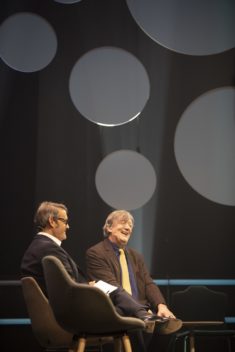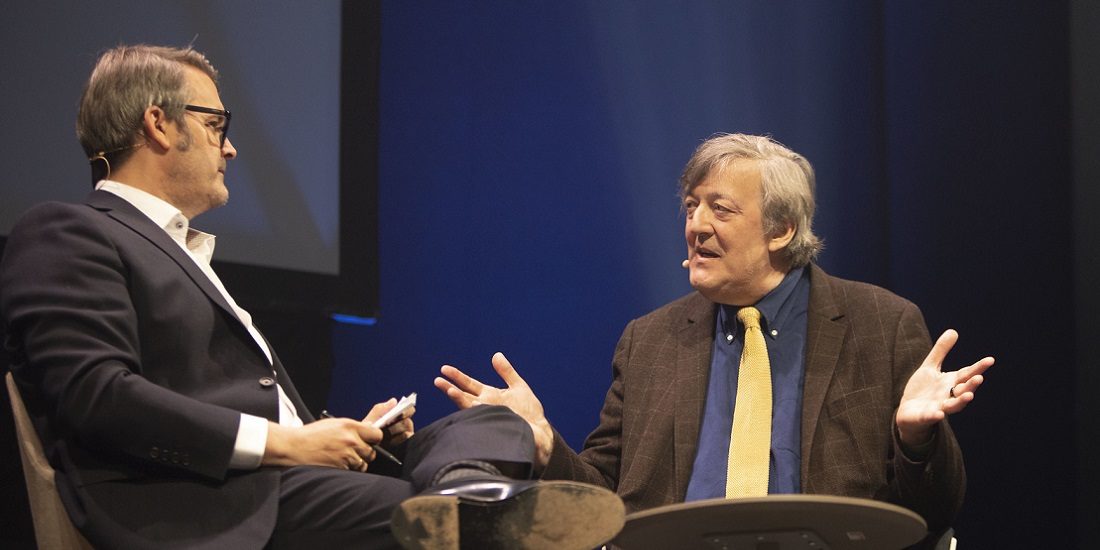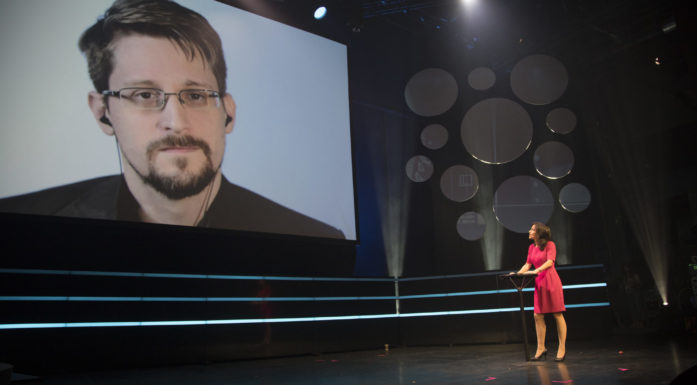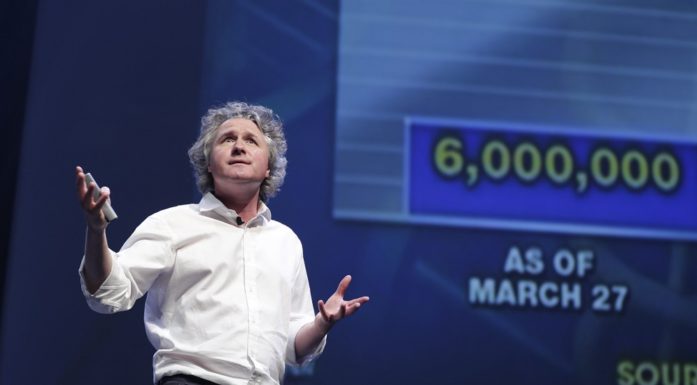Stephen Fry: If we sleepwalk, we’ll die
“We may be a mere 20 years away from creating artificial life,” says Stephen Fry. He warns that these new life forms won’t see any need to keep us, and may instead look at us as pests.
The day we humans create free-thinking beings, we need to be prepared for the possible consequences if we want to have any chance of surviving. And that day isn’t far away, says Fry.
TV personality Stephen Fry took part in NTNU’s The Big Challenge music and science festival this week. Among Fry’s many talents, he is respected for his great ability to familiarize himself with and develop well-founded perceptions on seemingly all kinds of topics. His public presentation in Trondheim no doubt increased the respect of many people in the audience.

What will the new life forms really mean for us? Will they kill those who created them? Will they kill their gods? The movie The Terminator addresses this topic as well. Photo: Wikimedia Commons, Fair use
Fry has made a name for himself through the British TV series QI, in which – over the course of 201 episodes – he led us safely through the wilderness of misunderstandings, misinformation and gibberish within all kinds of science topics. As an actor he has been involved in a number of productions for film and television.
In conversation with Norwegian TV host and musician Thomas Seltzer, Fry talked about truth, lies and fake news, but also about the distinction between what is real and what is artificial. And if we humans create new, independent life, this new life will also be real.
We have to be aware of this if people are to survive. We need to know what we’re doing.
- You may also like: How to defend yourself against fake news
Sleeperwalkers will die
Fry compares the evolution of artificial life with what people initially thought as the internet took off. He himself has 12.7 million followers on Twitter and by no means opposes the technology himself.
But despite its many and great advantages, the internet has not become the unqualified blessing that many thought it would be 25 years ago.
In the beginning, most people regarded the Internet as a tool that would contribute to a world without bigotry, where we could find museums and art and progress and develop ideas together across borders.
“But eventually Pandora’s box was opened, and out streamed trolls, abuse, fake news and lies,” says Fry.
We cannot afford to repeat that now.
“We fell asleep coming into the internet age. But we can’t do that as we enter this age – or we’ll die,” Fry said.
Got rid of the gods
Fry compared the human development of artificial life with a story from Greek mythology, one of his many areas of interest.
The Titan Prometheus created human beings. Even Zeus, the most powerful of the Greek gods, was pleased, as long as Prometheus did not give humans fire. For fire would transform people from creatures that resembled other animal species into free-thinking and questioning beings.
Prometheus defied Zeus, enabling human beings to develop civilizations and make progress. Over time, this led to people no longer needing the gods.
So they got rid of them.

Fry is no pessimist about mankind. Our curiosity and the urge to do good will probably save us. Photo: Thor Nielsen, NTNU
We are the new gods
We can observe the same mindset in the present day. Should we give the new life forms self-awareness, or try to keep them as useful helpers? Fry thinks this is a question that will answer itself, because no one has ever succeeded at stopping technological development.
“Some people will say that we shouldn’t give fire to the new living creatures, while others will say that they love them and that we have to. And someday someone will steal the fire for them,” Fry says.
These living beings won’t see any need for us humans then. They may want to get rid of the beings who created them. They might get rid of the gods. Get rid of us.
In an extension of this, and as an interesting thought experiment, Fry asks if this might actually have happened several times already. That people have done the same thing before.
- You may also like: Planting the seeds for a bioliterate tropical country
Fry is optimistic
“What a remarkable time to be alive,” says Fry.
We’re living at a time when the first person to live to 200 years old has probably already been born. Progress has been huge. At the same time, we live in a time when claims and mere assumptions are often perceived to be just as valuable as real, empirically-based knowledge.
Yet Fry is still optimistic about human beings. Clearly exceptions exist, but most people want to be good and do good for others. This, along with our curiosity and the urge to learn new things will help save us.
Because we can choose to believe in the good, says Fry.





